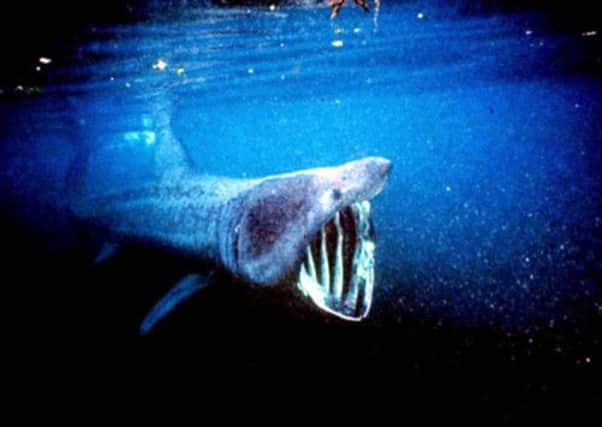27 basking sharks tagged in Scotland’s west coast


Scientists from Scottish Natural Heritage (SNH) and Exeter University are now in the second year of the tagging scheme to track the giant shark, which can reach 65ft in length and weigh up to 34 tonnes, and are regular summer visitors to Scottish waters.
It was announced today that a total of 27 sharks had been tagged this year in the scheme which came to an end in early August. An SNH spokesman said: “So far most have stayed around the Inner Hebrides, one has ventured to the Outer Hebrides and back again, and two headed to the North coast of Ireland.”
Advertisement
Hide AdAdvertisement
Hide AdDr Suzanne Henderson from SNH, who is managing the project, said: “We had an ambitious target of tagging 27 basking sharks this summer. They were slightly later to appear than in 2012 - this may be due to the availability of plankton, which they feed on. However we’re delighted to have successfully tagged all 27 and now we’re looking forward to seeing where they go over the next few months.”
She added: “Although we know a lot about basking shark biology and worldwide distribution, surprisingly little is known about their seasonal movements. The information we get from these tags will add to the results from the work we did in 2012, helping us build up a picture of the sharks’ behaviour throughout the year.”
Dr Matthew Witt from the University of Exeter said: “It’s great to be able to learn more about the seasonal movements of these enigmatic animals, which play an important role in the food chains of our coastal seas. Working together our two organisations are helping to determine how important the Hebrides area really is for these sharks.”
The SNH spokesman explained: “
Fifteen of the sharks are fitted with tags which provide information on the position of the shark each time it comes to the surface, allowing it to be tracked online. The remaining tags are designed to collect data on depth, temperature and light levels over several months and then detach from the shark. These tags then float to the surface and transmit collected data to satellites passing overhead. However, if they are physically retrieved then much more data can be collected.”
Basking sharks in the North East Atlantic are recognised by the International Union for the Conservation of Nature as an “endangered” species. Earlier this year the Marine Conservation Society, which also monitors basking shark movements off Britain’s coast, said the 2013 season had been slow to start, with fewer sightings than normal. The sharks appeared to be giving British waters the cold shoulder this year because of falling sea temperatures.
SEE ALSO